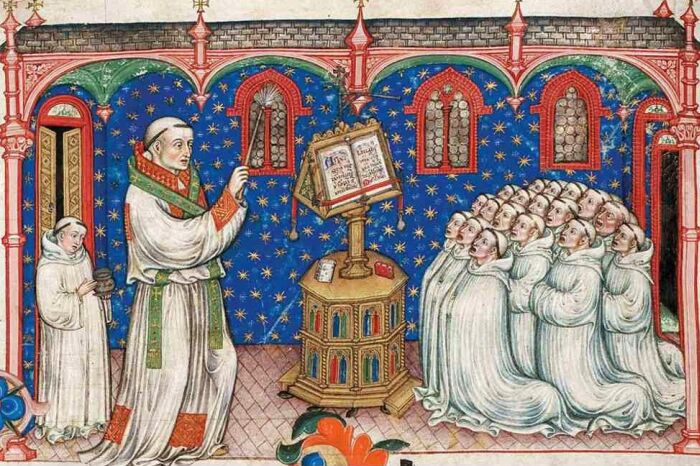The Offices of Terce, Sext, and None: the Remaining Little Hours
Terce, Sext, and None correspond to the third, sixth, and ninth hours of the day, and thus follow Lauds which begins at sunrise, approximately 6:00 am. Terce is Latin for third, Sext means sixth, and None means ninth. In the primitive Church there is evidence that the apostles and early Christians prayed at these times, either in private or in common. The Acts of the Apostles and the post-scriptural document, the Didache of around 100 AD, also Saint Clement of Alexandria, Hippolytus of Rome, and Tertullian of Carthage make mention of these prayer times. In the Old Testament, such as Daniel 6:10, we also find mention of such practice. There it is said that Daniel got “down on his knees three times a day to pray to his God and praise Him,” though some commentators would say this might be reflecting the Jewish custom of prayer at morning, noon, and evening, rather than midmorning, midday, and mid-afternoon.
In any case, the custom of Little Hours grew up in the monastic and larger Church in the course of the centuries and still is followed in some monasteries and hermitages. Saint Basil the Great mentions that these little hours are of a monastic origin and, but for the monks of Saint Pachomius prior to Basil, these offices were still prayed in private. It seems there was no universal practice of the communal recitation of these hours until the Middle Ages. These hours continue to be prayed by many religious communities to this day.
From the Monastery of Christ in the Desert
Sometimes big events happen in our lives: a birth, a marriage, or a death and we find God in these life-changing events. But it is in the “little hours” the time in between big life events that we most frequently meet God. We are called to “everyday holiness” as we discern and do God’s will throughout the day. The phrase “little hours” refers to our encounter with God in the “in-between” time of daily life. Cooking and cleaning, taking care of children, working at a job outside the home, ministering in humble circumstances. Just as the little canonical hours sanctify the time between the major hours so we sanctify our own little hours between big life events by living a life of prayer and service in the circumstances of everyday life. In all the hours of our lives, we seek the grace of God which is His very life within us. This is the “one thing that is necessary” that Jesus spoke of.
Everything is a grace, everything is the direct effect of our Father’s love – difficulties, contradictions, humiliations, all the soul’s miseries, her burdens, her needs – everything, because through them, she learns humility, realizes her weakness. Everything is a grace because everything is God’s gift.
Saint Therese of Lisieux

